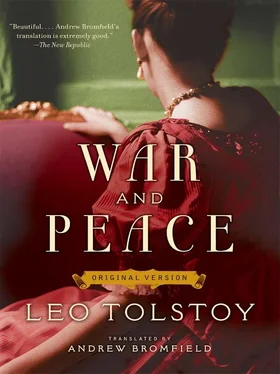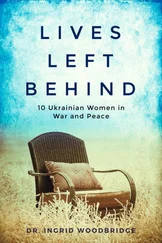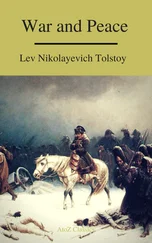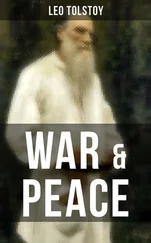“Give me your word, your word of honour, that you won’t go!”
“Word of honour.”
“Make sure, now.”
“Of course.”

It was after one in the morning when Pierre left his friend’s house. It was a bright St. Petersburg June night. Pierre got into a cabby’s carriage with the intention of going home. But the closer he came, the more strongly he felt the impossibility of getting to sleep on this night that was more like an evening or a morning. He could see for a long way in the empty streets. He pictured Prince Andrei’s animated, handsome face and heard his words – not about his relations with his wife (that did not interest Pierre) – but his words about the war and the future life that might await his friend. Pierre loved and admired his friend so unconditionally that he could not accept that, the moment Prince Andrei desired it, everyone would not acknowledge him as a remarkable and great man, whose nature was to command, not to obey. Pierre simply could not imagine that anyone at all, even Kutuzov, for instance, would have the courage to issue commands to a man so evidently born to take the leading role in everything as he conceived Prince Andrei to be. He imagined his friend before the assembled troops, on a white steed, with a terse, forceful speech on his lips; he imagined his courage, his successes, his heroism and everything that most young men imagine for themselves. Pierre recalled that he had promised to repay a small gambling debt today to Anatoly, at whose house the usual company of gamblers had been due to gather that evening.
“Go to Kuragin’s,” he said to the driver, thinking only of where he could spend the remainder of the night, and completely forgetting the promise he had given Prince Andrei not to visit Kuragin.
On arriving at the porch of the large house in which Anatole Kuragin lived beside the Cavalry Guards barracks, he recalled his promise, but immediately, as happens with those people who are described as lacking in character, he wanted desperately to go in and take another glance at that dissolute life with which he was so familiar and so bored, and the thought came to him of itself that the promise he had given did not mean anything and, moreover, he had also promised Anatoly, before Prince Andrei, that he would bring the money he owed: finally, he thought that all these words of honour were mere conventions, without any definite meaning, especially if you realised that tomorrow perhaps he would die or something so unusual would happen to him that nothing would be honourable or dishonourable any longer.
He walked up to the well-lit porch, on up the stairs and went in through an open door. There was nobody in the sumptuous entrance hall, but there were empty bottles lying about, a heap of bent playing-cards in the corner, cloaks and galoshes; there was a smell of wine; he could hear talking and shouting in the distance.
Evidently the gambling and supper were already over, but the guests had not yet departed. Pierre took off his cloak and went into the first room, in the centre of which there stood a life-size statue of a racehorse. Here he could hear the racket from the next room more clearly, the familiar sound of six or eight men laughing and shouting. He went into the next room, where the remains of supper were still on the table. About eight young men, all without frock coats and mostly in military riding breeches, were crowding around an open window and all shouting incomprehensibly in Russian and French.
“I bet a hundred with Chaplin!” shouted one.
“Make sure you don’t support him!” shouted another.
“I’m for Dolokhov!” shouted a third. “Part our hands, Kuragin!”
“All in one breath, or you’ve lost!” shouted a fourth.
“Yakov, let’s have the bottle, Yakov!” shouted the master of the house, a tall, statuesquely handsome fellow standing in the middle of the crowd. “Stop, gentlemen. Here he is, Pierre!”
“Ah! Pyotr! Petrusha! Peter the Great!”
“Peter the Stout!” everybody began shouting from every side, crowding round him.
Every one of the red or blotchy young faces expressed delight at the sight of Pierre, who removed his spectacles and wiped them as he looked at all this crowd.
“I don’t understand a thing. What’s going on?” he asked with a good-humoured smile.
“Stop, he’s not drunk. Give me a bottle,” said Anatole, and taking a glass from the table, he went up to Pierre.
“First of all, drink.”
Pierre began drinking glass after glass without speaking, peering out from under his brows at the drunken guests, who had crowded round the window again, discussing something that he did not understand. He drank one glass at a gulp; Anatole poured him another with a meaningful expression. Pierre drank it resignedly, but more slowly than the first. Anatole poured a third. Pierre drank that one too, although he paused twice in order to catch his breath. Anatole stood beside him, gazing by turns with his beautiful, big eyes at the glass, the bottle and Pierre. Anatole was a handsome fellow: tall and full-bodied, white-skinned and ruddy-cheeked; he had such a high chest that his head was inclined backwards, which gave him a haughty air. He had a lovely fresh mouth, thick light-brown hair, slanting black eyes and a general appearance of strength, health and the good nature of vivacious youth. But his beautiful eyes with the wonderful, regular black brows seemed to have been made less for looking than for being looked at. They seemed incapable of changing their expression. It was only clear that he was drunk from his red face, and even more so from his unnaturally out-thrust chest and the wide stare of his eyes. Even though he was drunk and the upper half of his mighty body was clad in nothing but a shirt open at the chest, from the faint aroma of perfume and soap which surrounded him, mingling with the smell of the wine he had drunk, from his hairstyle, painstakingly pomaded in place that morning, from the elegant cleanness of his plump hands and superbly fine linen, from that distinctive whiteness and delicate smoothness of his skin, the aristocrat was apparent even in his present condition, by virtue of the habit, acquired in childhood, of painstaking and lavish care for his own person.
“Come on, drink it all! Eh!” he said seriously, handing Pierre the last glass.
“No, I don’t want to,” said Pierre, faltering halfway through the glass. “Well, what’s going on?” he added with the expression of a man who has fulfilled his initial obligation and believes that he now has the right to join in the common pursuit.
“Drink it all, eh?” Anatole repeated, opening his eyes wider, lifting the unfinished glass in his white hand, his arm bared to the elbow. He had the look of a man doing something important, because at that moment he was focusing all his energy on holding the glass straight and saying exactly what he wanted to say.
“I told you, I don’t want to,” replied Pierre, putting on his spectacles and walking away.
“What are you shouting about?” he asked the crowd that had gathered round the window. Anatole stood and thought for a moment, handed the glass to a servant and, smiling with his lovely mouth, also went over to the window.
On Fridays Anatole Kuragin received everyone at his home, they played cards and ate supper there, then spent most of the night out. On that day the session of faro had developed into a protracted game for high stakes. Anatole had lost a little, and since he had no passion for gambling, but played out of habit, he had soon dropped out. One rich man, a life-hussar, had lost a lot, and one Semyonovsky Regiment officer, Dolokhov, had won from everyone. After the game they had sat down to supper very late. An extremely serious Englishman, who described himself as a traveller, had said that he had been given to believe that Russians drank far more heavily than he discovered they actually did. He had said that in Russia they drank nothing but champagne, but if they would drink rum, then he proposed a wager that he would drink more than anyone else present. Dolokhov, the officer who had won more than everyone else that evening, had said it wasn’t worth making a wager simply on a bottle of rum, and he had offered to drink the whole bottle without taking it from his lips, and also while sitting on the second-floor window-ledge with his legs dangling outside. The Englishman had proposed the wager. Anatole had accepted the wager for Dolokhov, that is, that Dolokhov would drink the full bottle of rum sitting on the ledge. Pierre came in just when the servants were starting to remove the frame that prevented anyone from sitting on the outside window-ledge. The second-storey window was high enough for someone falling from it to be killed. Drunken and amicable faces on all sides kept telling Pierre what was going on, as if it were particularly important for Pierre to know the state of affairs. Dolokhov was an officer in a Guards infantry regiment, of medium height, sinewy and solidly built, with a broad, full chest, extremely curly hair and light-blue eyes. He was about twenty-five. Like all infantry officers, he wore no moustache, and his mouth, the most striking feature of his face, was fully visible. It was an extremely agreeable mouth, despite the fact that it almost never smiled. The lines of this mouth were curved with remarkable subtlety. At its centre the upper lip pressed down vigorously on the firm lower one; sharp folds in the corners constantly formed something like two smiles, one on each side, and all of this, together with a direct, somewhat insolent, but ardent and intelligent gaze, produced such an extraordinary impression it made people wonder about the owner of such a beautiful and strange face. Women liked Dolokhov, and he was fully convinced there was no such thing as a woman whose character was entirely above reproach.
Читать дальше













